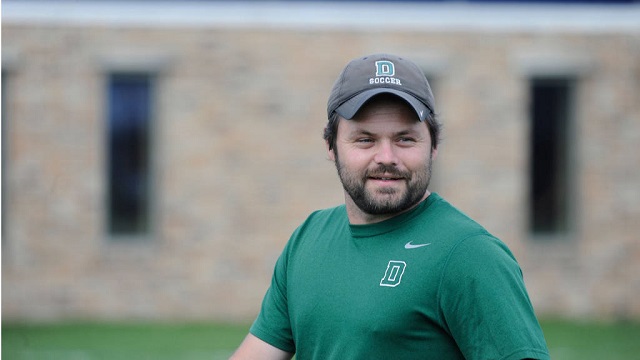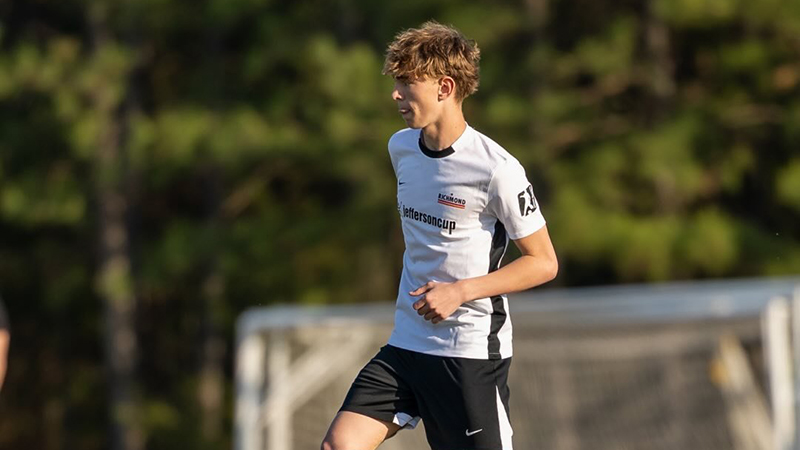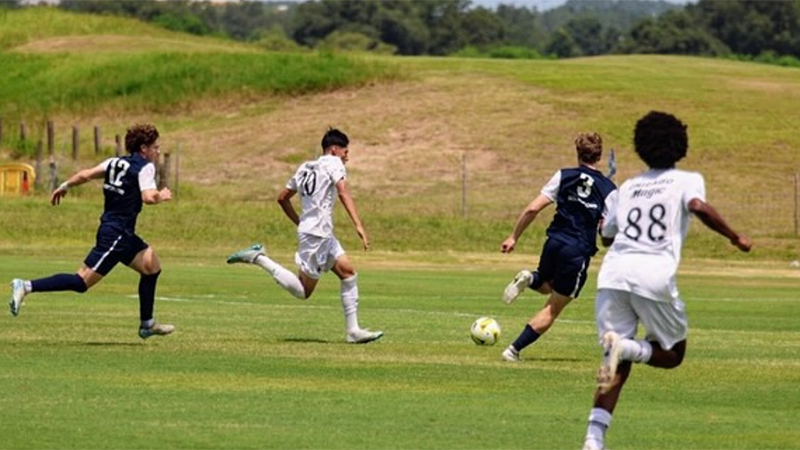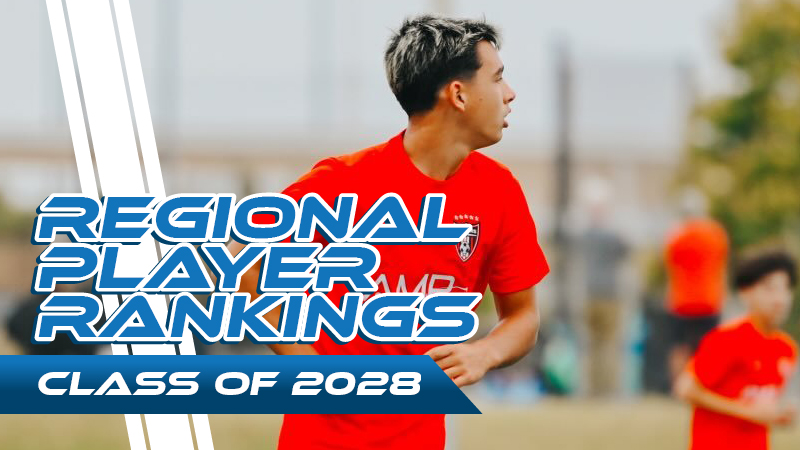Ask a Coach: Dartmouth's Riley opens up

One after another, they landed at Dartmouth. One from the Philadelphia Union. Another from the New York Red Bulls. More recently, yet another from Toronto FC.
Dartmouth has never been considered one of the elite national programs, a small fraternity that once bogarted the national lens to such a degree that top prospects never gave a second though about going anywhere else. Things have changed, and a number of programs are riding the crest of the social and digital revolution. Dartmouth and their enterprising coach Chad Riley are merely near the forefront.
Under Riley the last three years, Dartmouth’s been on a startling upward trajectory. After going 6-7-4 his first year, Dartmouth is 33-16-8 the last three seasons, which includes three consecutive Ivy League titles and three straight years with a win in the first round of the NCAA tourney. Sprinkled in the midst of that has been something of an eye-opening role reversal in which Riley’s secured the commitments of several pro prospects via a non-traditional route to the pros.
MORE: Boys 2018 class shaping up to break records | Girls 2021 class drops first update to acclaim
Thus begins a new segment on TopDrawerSoccer.com titled Ask A Coach. Appearing periodically throughout the year, this series will endeavor to pull out interesting topics from the world of elite youth and college soccer to find ways in which the landscape is shifting from a first person coach's view. Today’s series opener starts with Riley, who’s helping to pioneer new paths forward outside the perceived pinnacle programs of DI men’s college soccer to MLS and beyond.
Here’s how the former Notre Dame assistant is doing it.
TDS: Why do you think Dartmouth recently has been able to have such success as perhaps not a traditional power?
Riley: “I think it always starts with having a good school. Being at a good school like Dartmouth makes recruiting and everything obviously much easier. I think about how things change over time. I think exposure as well (has mattered for us), I think digital networks have been a great tool for us to get our games and our name as a program out there. That certainly helps. And then I think we have a pretty long history as a program of being able to help people get to the next level. And that helps differentiate us at times to look over 30 years or so that people can actually make the league.
“And then most recently we had a couple guys be able to sign professional contracts, and that always makes the path seem a little bit clearer to potential recruits.”
You’ve been able to woo some top recruits from major Development Academy programs like the Philadelphia Union, New York Red Bulls and Toronto FC. How do you attract highly recruited players to a program perhaps outside the accepted halls of college soccer power?
“I think there’s probably a bigger jump than even some of the younger kids can realize, no matter what school they’re going to. I think the level of college soccer, I like to think of us as the best U23, maybe U21 league in the world. So you’re going to play against good teams and players week-in, week-out. For us, I’ve got a great staff and that’s helped. And I think it’s also, there are so many good players out there now, and in some ways they can’t all go to the same five schools.
“And I start all of that with the question of, ‘why not?’ Is there anything at Dartmouth that really holds you back from getting to the next level? We schedule a very strong schedule. We hovered between a top 5 and top 15 strength of schedule last year and will continue to do that. We have a beautiful grass stadium field, we’ve got good training facilities. We think we create an environment that really grows you as a student, person and player very effectively.
“I just think you have to try to convey that to the recruits that you’re speaking with over time. For us, once the students come visit Dartmouth I think they start to see it’s a pretty wonderful place to go to.”
How do you think the American value placed on higher education benefits you, in the Ivy League, in attracting well-recruited players?
“It’s one thing to think, ‘Can I make a living playing soccer while I’m playing?’ It’s another thing to think whether you’re going to make enough money so you don’t have to do anything afterwards. The beauty of our system is, once you’re at Dartmouth, you’re there, and if someone’s going to pay you a significant amount of money to play soccer you certainly have to consider it, and I would encourage everyone to always come back and finish their degree. But I think there are differences in every opportunity.
“Why I believe in this part of our system so much, and someone from abroad actually sums it up well. We used to do a coaching clinic seminar at Notre Dame, and we had someone in from a club in Europe presenting, and he was talking to the coaches and he was like, where he works, after 18 they’re only going to sign a couple people and then everybody else has to go to something else so then there’s this high rate of failure. Whereas for us, no matter what, when you finish you’ve got your degree, and hopefully you put yourself in a position then to have your degree in your back pocket while also getting to pursue your dream.
“And I think one thing people are coming to understand now with the way soccer has changed is that your career’s not over at 29 anymore. Maybe when the career span was much shorter because of medicine and injuries and that kind of stuff, but when you look at how guys even at the top level are pushing their bodies until they’re 35, 36 years old, it’s just shifted a little bit. I think we can be very effective in developing players to make that jump in all facets of the game.”
What do you tell top recruits you meet with who think that maybe the only way they can get to the pros is through one of those five or 10 major Division I programs that tend to get the most attention?
“I think there’s a lot of things that go into it. I think it’s the position that they need someone to contribute quickly, and that factors into it, and every school is going to be different in that every year. That’s not to say you can’t play right away at one of those schools, but maybe at a place like Dartmouth you’re able to get in the games at a younger age with more significant playing time, so I think that factors into it.
“I still think it’s proven not just at Dartmouth but at so many other schools that you can develop outside of that, because I think we all have to play against one another. So there’s not this sort of elite league that doesn’t play anyone else. You’re able to do that. When I was growing up, you’d see Virginia, Indiana, UCLA and maybe even St. Louis or something play in the final four as the only college soccer you would get. So obviously if you’re trying to get exposure you wanted to go to one of these schools. But I think it’s a different animal now with the digital networks and games being more readily available.
“And I think our league has grown too. MLS scouting has gotten more extensive. It used to be based on just relationships coaches had with different people in the league, but now it’s starting to get very professional and they’re starting to find players wherever they can that will help their clubs win.”
Would you say then it’s shifted from players looking toward programs themselves as the gateway toward viewing the coaching staffs themselves as more of the draw, regardless of the school itself?
“I think there’s just more information out there. I think all those things factor into the recruits’ decisions. It’s just easier to find more information about the programs. I think it can help that if you feel you’re having success and doing a good job, regardless of where you coach, it keeps you in the conversation a bit more than it maybe used to be. If you’re at a good school and you’ve had a little bit of success and you help people realize their dream, I think that carries a lot of weight.
“I do go back to, at the end of the day for me, every time I talk to someone I know that a Dartmouth degree can change their life in so many different ways. I think that’s something that helps not only myself but also all the schools in our league do that.”
Do you feel like the proliferation of digital media has helped change the landscape and given traditionally smaller programs a chance to compete for top recruits in a bigger way?
“I think to be honest, the media too has helped create just more information out there. I don’t want to put a timeframe on it, but certainly a handful of years ago, if you were playing in the ACC, the Pac-12, championship games, tournament weekends, Big East weekends, the Big 10, the coaching staffs in MLS were four people so they could only cover those. And it was almost like, if the players aren’t at one of those schools than they must not be that good. But now I think you’re seeing stories of guys that have come from non-traditional powers that have proven to be very good players. And all the sudden the MLS clubs are like, OK, we have more scouting resources now and we have the ability to kind of see them play on a regular basis. So I think it has shifted, that dynamic, a little bit."
Headlines
- Recruiting Roundup: December 22-January 4
- 2026 Women's Division I Transfer Tracker
- ECNL Boys FL Selection Game Rosters
- TDS Boys Regional Rankings: Class of 2028
- 25 Male Players That Dominated 2025
-
ECNL Boys Florida: U17 Players to Know

- 25 Female Players That Dominated 2025
-
Women's DI Recruiting Ranks: Dec.

-
ECNL Boys FL: Under-19 Players to Know

-
Commitments: NEPSAC Star Heads West




